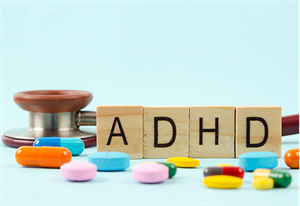
Medication and Treatment
What is ADHD medication?
For many people, putting on eyeglasses helps them focus their eyes. In the same way, ADHD medication helps people with ADHD focus their thoughts. The medications help them ignore distractions, pay attention and control their behavior. Medication doesn’t cure ADHD. But it can help ease the symptoms of ADHD while you or your child is taking it so you can function more effectively.
ADHD medications work in different ways depending on the type. But all ADHD medications work by increasing the levels of important chemicals (neurotransmitters) in your brain.
These neurotransmitters include dopamine and norepinephrine. Increasing the amount of these neurotransmitters helps improve the symptoms of ADHD, including:
Increasing attention span.
Reducing hyperactivity.
Controlling impulsive behavior.
Managing executive dysfunction.
What does ADHD medication do?
What are the different types of ADHD medications?
ADHD medications include stimulants and non-stimulants. Healthcare providers often prescribe antidepressants, as well.
Stimulants are the most common type of prescription medication healthcare providers use to treat ADHD. Despite their name, stimulants don’t work by increasing your stimulation. Rather, they work by increasing levels of certain chemicals (neurotransmitters) in your brain called dopamine and norepinephrine. These neurotransmitters play important roles in your ability to pay attention, think and stay motivated.
Immediate-release (short-acting): You normally take these stimulants as needed. They can last for up to four hours. When people with ADHD are coming down off a short-acting stimulant dose, they can experience what’s often referred to as “the crash” or “the rebound effect.” It typically involves a sharp decrease in energy level, and it commonly causes severe hunger. Some people experience an intense drop in mood or depression.
Extended-release (intermediate-acting or long-acting): You typically take these stimulants once in the morning each day. Some last from six to eight hours, while others last for up to 16 hours. Longer-acting ADHD medications may result in fewer “ups and downs” during the day and may reduce the need for extra doses at school or during work.
Non-stimulants are prescription medications, but they’re not controlled substances like stimulants. That means you’re less likely to improperly use or become dependent on them. They work by increasing the levels of norepinephrine in your brain. Non-stimulant medications for ADHD take longer to start working than stimulants. You may not feel the full effects of these medications until you’ve been taking them regularly for three to four weeks. However, these medications can also help you improve your attention, focus and impulsivity
Your healthcare provider may prescribe a non-stimulant for various reasons, including:
Stimulants aren’t effective.
You have intolerable side effects from stimulants.
They want to try pairing it with a stimulant to increase effectiveness.
This section was researched and written by Benjamin Wade
